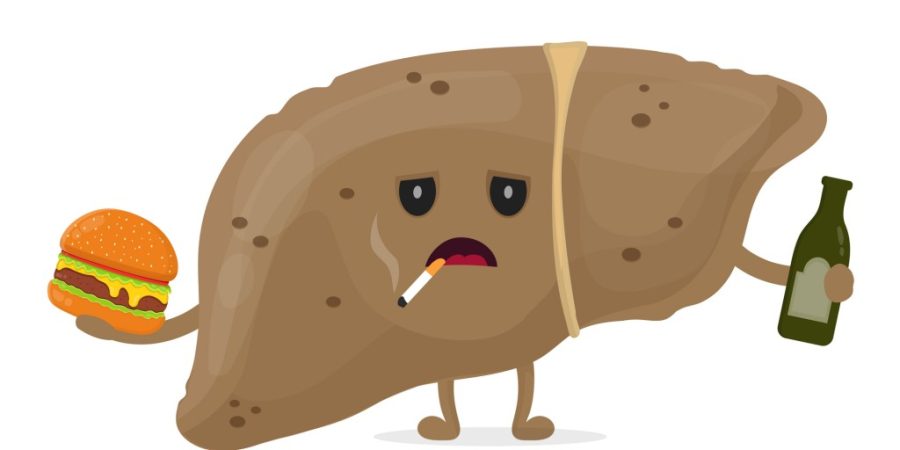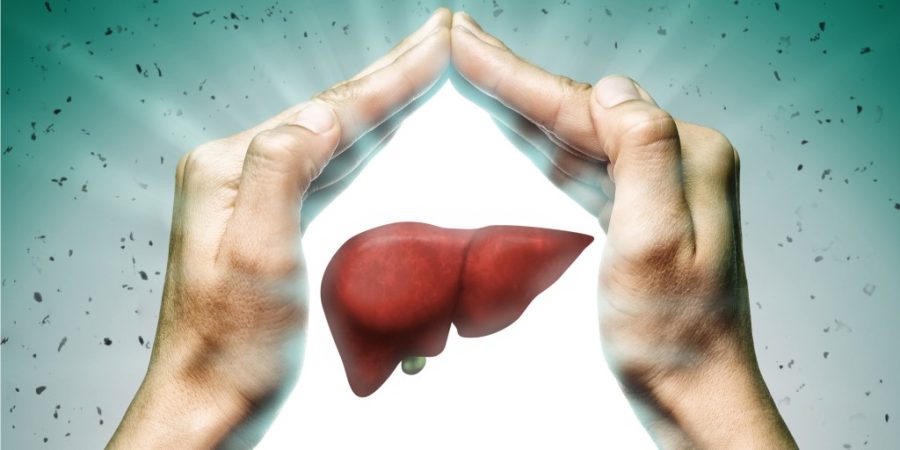
The liver is the body’s largest internal organ and is responsible for a host of important processes like digesting food, distributing nutrients, and processing toxins. It is also the liver’s job to process alcohol. In fact, alcohol is one of the biggest stressors on the liver and liver function, and problems related to liver and alcohol use have been well established. However, the liver is a uniquely resilient organ, leaving many to question: Can the liver heal itself?


In short, liver damage from alcohol is possible, but the extent of liver damage repair depends on each individual and their personal circumstances. Learn more about the frequently asked questions surrounding the liver, alcohol-induced liver problems, and how to repair your liver.
Table of Contents
What Is Liver Disease?
Liver disease refers to any ailment that affects the liver, whether alcohol-related liver disease or a condition due to some other cause. Some examples of liver disease unrelated to alcohol use include infections (i.e., hepatitis A, B, or C), autoimmune disorders, cancers, or genetic conditions.
On the other hand, examples of liver problems from substance abuse include drug toxicity from overdose, alcoholic fatty liver (steatosis), and alcoholic hepatitis, which can lead to cirrhosis. Increased risk of cancers and other chronic ailments can also be a result of alcohol intake.
What Is Fatty Liver Disease?
Fatty liver disease is just what it sounds like: a buildup of fats in the liver. This fat buildup can cause liver problems and is often caused by excess dietary calories, whether from alcohol or otherwise.
Fatty liver disease from drinking is referred to as alcoholic fatty liver (non-alcoholic fatty liver is the name of the same condition when alcohol use is not responsible). The good news is that a fatty liver alone may not cause problems. However, fatty liver disease is often accompanied by inflammation of the liver (steatohepatitis), which can lead to further issues like scarring of the liver (cirrhosis).
How Does Alcohol Affect the Liver?
The vast majority of alcohol is processed in the liver, which occurs at the rate of approximately one drink per hour. Simply put, the more you drink, the harder (and longer) the liver has to work at breaking down the alcoholic toxins. Over time, the liver will no longer be able to regenerate new, healthy cells, and scar tissue will develop with chronic alcohol use.
Taking any medications with alcohol, whether over the counter or illegal drugs, can accelerate the process of liver disease. For example, acetaminophen (Tylenol) is especially hard on the liver.
Stages of Alcoholic Liver Disease


Liver disease from drinking usually progresses in stages. The stages of alcoholic liver disease generally include:
- Alcoholic Fatty Liver – Fat accumulating in the liver
- Alcoholic Hepatitis – Inflammation from an unhealthy liver
- Fibrosis – Initial scarring that occurs as healthy cells cannot regenerate quickly enough
- Cirrhosis – Irreversible, invasive scarring that greatly impairs liver function
It is important to note that the relationship between alcohol and the liver is complicated. Some heavy drinkers never develop liver problems, while some of those that suffer from liver problems only ever drank moderately.
What Are the First Signs of Liver Damage from Alcohol?
Early symptoms of liver disease (i.e. from alcoholic fatty liver) may not be noticeable and are often caught during routine bloodwork. Once alcoholic liver disease symptoms are noticeable, the disease may have already advanced into a serious condition.
One early symptom of liver problems is when your liver hurts after drinking. Liver pain from drinking may indicate inflammation and could go away by simply abstaining from drinking. Other early sluggish liver symptoms may include:
- Fatigue
- Digestion issues
- Dark circles under the eyes
- Skin conditions
- Hormonal imbalance
More advanced signs of liver disease include:
- Abdominal pain and swelling
- Jaundice (yellow skin and eyes)
- Swollen legs, ankles, or hands
- Dark urine
- Bruising
- Itching
- Loss of appetite
- Change in color of stool (pale, bloody, tarry, etc.)
How Many Years of Drinking Before Liver Damage?
Liver disease is highly individualized, and while the relationship between alcohol and liver problems is well established, the amount of time and quantity of alcohol it takes to cause damage is less clear.
Historically, 60-80 grams of alcohol on a daily basis for five to 10 years was thought to place a person at a high likelihood to develop alcoholic liver complications. More current research has suggested that liver damage has been noticed at levels closer to moderate drinking, or around 20-30 grams of alcohol on a daily basis for a number of years.
For reference, one drink is considered 14 grams of alcohol. This usually breaks down to:
- 12 ounces of regular beer at five percent alcohol
- five ounces of wine at about 12% alcohol
- 1.5 ounces of distilled spirits at about 40% alcohol
Ultimately, there is no hard line as to how many years of drinking will result in liver damage, and no amount of alcohol has been determined to be safe. Keeping drinking to a minimum or abstaining entirely is the best option for good liver health.
Can the Liver Heal Itself?


The liver has incredible healing properties. Given this, it’s fair to ask, can the liver repair itself after years of drinking? While the degree of liver repair depends on a multitude of factors, liver recovery from inflammation and other early stages of liver disease are optimistic if a person quits drinking alcohol and prioritizes a healthy lifestyle.
If chronic alcohol use continues and results in scarring of the liver, or cirrhosis, this will be more difficult to treat. Scar tissue is permanent and will eventually impair liver function. Medical treatment will slow down this end phase of liver disease, but it will not reverse the alcohol-related damage.
How Long Does it Take for the Liver to Heal?
A common inquiry revolves around how long it takes for the liver to heal, or how long to abstain from alcohol to repair livers. Ultimately, this will depend on:
- The amount of alcohol used
- The length of time alcohol was used
- What degree of liver damage has occurred
In addition, nutrition outside of alcohol consumption and genetic predisposition will also affect the length of time for liver recovery.
Liver damage from moderate alcohol consumption or occasional binges may heal within days to weeks after quitting drinking. Heavier alcohol consumption may take months to years to recover from. In general, it is impossible to pinpoint a timeline. Even 30 days of abstaining from alcohol in some cases can provide the liver with the time it needs to restore to normal function.
How to Heal Your Liver
Alcohol-induced liver damage is not always possible to reverse. However, if liver problems have already established, there are a few methods of how to cleanse your liver from alcohol.
- Quit drinking. The liver needs time to break down toxins without new ones begin dumped into the system.
- Prioritize a healthy lifestyle. This means optimizing nutritional intake and making sure to exercise. Quitting any other substance or tobacco use is also part of healthy living.
- Check your meds. Many medications, both over-the-counter and prescription, are very difficult for the liver to process. If you are taking some of these, speak with your doctor about alternative options.
- Eliminate additional environmental toxins. Many people are surprised to learn that products like cleaning supplies, paints, and lawn chemicals are hazardous to humans. Whether absorbed through the skin or inhaled, these are additional elements that may be harming the liver.
Quitting alcohol is an important step to the liver repair process. If you’re having a hard time quitting alcohol, you are not alone. Fortunately, alcohol addiction treatment is an available, effective option when for assistance with quitting drinking.
How Alcohol Addiction Treatment Can Help
Logically, the first thing to do when liver problems are suspected is to immediately quit drinking alcohol. However, this can be much easier said than done. Chronic alcohol use changes the chemistry in the brain, leading to alcohol cravings, dependence, and even addiction.
On the bright side, help is available. Alcohol addiction treatment can get you well on your way to liver health by helping you detox from alcohol in a safe environment while keeping you as comfortable as possible. Once the system is clear from alcoholic toxins, the habitual use of alcohol can be addressed.
Finding Alcohol Addiction Treatment in Florida
At the Blackberry Center in central Florida, we provide addiction recovery and mental health services to those in need of treatment. Our Florida-based treatment facility offers a range of treatment modalities, including:
- Cognitive Behavioral Therapy (CBT)
- Faith-Based Options
- Medication Management
- Addiction Education
- Nutritional Education
- Recreational Therapy
- Discharge Planning and Follow-Up Care
At our mental health and addiction treatment center, we know just how difficult quitting alcohol can be. But at The Blackberry Center, you won’t have to face these challenges alone. Through our continuum of care, our commitment continues long after you finish treatment at our central Florida rehab. To learn more about our levels of care and the programs we offer, give us a call at 888-512-9802 or submit a confidential contact form.
The post Can the Liver Heal Itself? | Alcohol & Liver Damage FAQ in 2021 appeared first on The Blackberry Center of Central Florida.
Source
Original Author: The Blackberry Center

